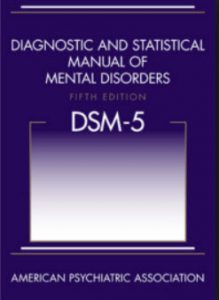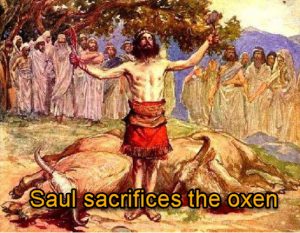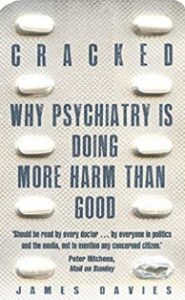King Saul: The archetypal biblical depressive
An epidemic of depression is now overwhelming both the church and society. In the UK, the number of students seeking mental health support while studying at university has increased by more than 50% in five years. To address this crisis, the Government plans to increase funding for mental health services.
In the face of this epidemic, the Christian Counselling Movement makes two claims. First, that Christians suffer with depression just like everybody else, and quote several Scriptures to support this contention. The second claim is that clinical depression is a disease just like diabetes or cancer. Therefore, Christians suffering from clinical depression are mentally ill and need to be treated. The treatment for depression is psychotherapy, and, if necessary, anti-depressant drugs. Many churches provide Christian counselling to help people in their congregation cope with their depression.
But a big question remains unanswered—what causes the disease of depression? The Diagnostic Manual of Mental Disorders (DSM) has replaced the word ‘disease’ with the word ‘disorder’. According to the National Institute of Mental Health in the USA there is no single known cause of depression. ‘Rather, it likely results from a combination of genetic, biochemical, environmental, and psychological factors. Research indicates that depressive illnesses are disorders of the brain… The parts of the brain responsible for regulating mood, thinking, sleep, appetite and behaviour appear to function abnormally. In addition, important neurotransmitters – chemicals that brain cells use to communicate – appear to be out of balance.’[i] While the exact cause of depression is not known, in a vain attempt to explain the cause of depression, the psychiatric profession and Big Pharma, without a shred of evidence, have propagated the theory of a chemical imbalance in the brain. Big Pharma uses the chemical imbalance theory to help market their antidepressant drugs.
DSM-3
The third edition of the Diagnostic Manual of Mental Disorders (DSM-III), published in 1980, created an entirely new way of looking at depression by introducing a descriptive symptom-based approach to mental illness. Dr Robert Spitzer, a psychiatrist who identified himself as an atheist and a secular humanist,[ii]  was the driving force behind DSM-III. The list of psychiatric disorders in DSM-III was created by asking mental health specialists to vote for the ‘disorders’ they wanted to be included. So the diagnostic criteria for depression have been created by the majority subjective opinion of psychiatrists, the very profession that stands to profit from increasing the number of depressed people in society.
was the driving force behind DSM-III. The list of psychiatric disorders in DSM-III was created by asking mental health specialists to vote for the ‘disorders’ they wanted to be included. So the diagnostic criteria for depression have been created by the majority subjective opinion of psychiatrists, the very profession that stands to profit from increasing the number of depressed people in society.
A brochure produced by the American Psychiatric Association informs the reader that depression is a serious medical illness that negatively affects how you feel, the way you think and how you act. Depression has a variety of symptoms, but the [two] most common are [1] a deep feeling of sadness or [2] a marked loss of interest or pleasure in activities. Other symptoms include: changes in appetite that result in weight losses or gains, insomnia or oversleeping, loss of energy or increased fatigue, restlessness or irritability, feelings of worthlessness or inappropriate guilt, difficulty thinking, concentrating, or making decisions and thoughts of death or suicide.
Depression DSM-5 Diagnostic Criteria
The DSM-5, introduced in 2013, outlines the following criterion to make a diagnosis of depression. The individual must be experiencing five or more symptoms during the same 2-week period and at least one of the symptoms should be either (1) a depressed mood or (2) a loss of interest or pleasure.
symptoms during the same 2-week period and at least one of the symptoms should be either (1) a depressed mood or (2) a loss of interest or pleasure.
The DSM describes depression as a disease of the brain; from its stance in secular humanism, it does not recognise the spiritual nature of man and therefore has no understanding of the nature and consequences of sin on the human condition. Scripture, on the other hand, while it does not use the word depression, deals with the concept of the downcast soul in a fundamentally different way.
King Saul’s depression
The story of King Saul, the first king of Israel, provides a biblical example of a man suffering from the devasting consequences of what the DSM has labelled ‘depression’ and what the Bible refers to as a downcast soul. We need to remember that Old Testament stories are written for our instruction in godly living (1 Cor. 10.11). What lessons should we learn from Saul’s life?
King Saul’s conduct was characterised by the sin of rebellion, arrogance, and unthinkable pride. It was the very height of foolishness. As a result, he experienced profound emotional pain and deep despair. We see the factors and circumstances that lay behind the misery and despair that cause him to be filled with self-pity and fear. The main lesson that we learn, however, is the that the sin of disobeying God’s Word has serious consequence.
Saul’s disobedience at Gilgal
Threatened by a vast Philistine army, King Saul travelled down to Gilgal to await the arrival of the prophet Samuel, who said to Saul. ‘You shall go down before me to Gilgal; and surely I will come down to you to offer burnt offerings and make sacrifices of peace offerings. Seven days you shall wait…’ (1 Sam. 10.8).  But when the prophet Samuel had not arrived after 7 days, Saul took it upon himself to take on the role of priest to make the offerings. Samuel soon arrived and rebuked Saul, ‘You have done foolishly. You have not kept the commandment of the Lord your God, which He commanded you. For now the Lord would have established your kingdom over Israel forever. But now your kingdom shall not continue… because you have not kept what the Lord commanded you’ (1 Samuel 13.13-14). This event is the start of Saul’s life of disobedience and had serious consequences.
But when the prophet Samuel had not arrived after 7 days, Saul took it upon himself to take on the role of priest to make the offerings. Samuel soon arrived and rebuked Saul, ‘You have done foolishly. You have not kept the commandment of the Lord your God, which He commanded you. For now the Lord would have established your kingdom over Israel forever. But now your kingdom shall not continue… because you have not kept what the Lord commanded you’ (1 Samuel 13.13-14). This event is the start of Saul’s life of disobedience and had serious consequences.
Saul’s and the Amalekites
The prophet Samuel instructs Saul to make war on the Amalekites to ‘utterly destroy’ them, in fulfilment of a mandate set out Deuteronomy 25.19.
Therefore it shall be, when the Lord your God has given you rest from your enemies all around, in the land which the Lord your God is giving you to possess as an inheritance, that you will blot out the remembrance of Amalek from under heaven. You shall not forget.
Saul goes to war and defeats the Amalekites; he kills all the men, women, children and poor-quality livestock, but leaves alive the king and best livestock. But Saul did not obey the command of the Lord, for he disobeys the Lord’s command to completely destroy the Amalekites—every man, woman, and child; every ox, sheep, and camel; everything that belonged to the Amalekites. After the battle, he allowed his people to bring home the best sheep and oxen. Saul himself captured the Amalekite king, Agag, and proudly brought him back alive.
Confronted by Samuel, Saul claimed he had fulfilled the commandments of God. ‘But Samuel said, “What then is this bleating of the sheep in my ears,  and the lowing of the oxen which I hear?” And Saul said, “They have brought them from the Amalekites; for the people spared the best of the sheep and the oxen, to sacrifice to the Lord your God; and the rest we have utterly destroyed”’ (1 Samuel 15. 14-15).
and the lowing of the oxen which I hear?” And Saul said, “They have brought them from the Amalekites; for the people spared the best of the sheep and the oxen, to sacrifice to the Lord your God; and the rest we have utterly destroyed”’ (1 Samuel 15. 14-15).
Samuel reminded Saul that the Lord had taken him when he was nothing and made him king over Israel, but now, when the Lord commanded him, he did not obey. Saul protested,
‘But I have obeyed the voice of the Lord’, again blaming the people and ignoring the fact that he, the king, was responsible for the people bringing back the animals.
Samuel answered him:
‘Has the Lord as great delight in burnt offerings and sacrifices, As in obeying the voice of the Lord? Behold, to obey is better than sacrifice’ (1 Samuel 15.22).
Saul then made this confession.
‘I have sinned, for I have transgressed the commandment of the Lord and your words, because I feared the people and obeyed their voice. Now therefore, please pardon my sin, and return with me, that I may worship the Lord.’
Samuel replied,
‘I will not return with you, for you have rejected the word of the Lord, and the Lord has rejected you from being king over Israel’ (v24-26).
Saul then admits that his sacrifice was a transgression (sin) and was against God’s command. It was the result of seeking the approval of people. Saul demonstrates his spiritual and moral deterioration, not only by his sin of presumption and impatience, but also by his disobedience and rebellion. Sent by God to exterminate the Amalekites—a warring tribe who had fought against the Israelites on their way into the Promised Land—he listens to the voice of the people and only partially obeys the Lord’s instructions.
Saul jealousy
When David returned from the slaughter of the Philistines, the women of Israel came out singing and dancing, to meet king Saul, with instruments of music. The women sang as they danced, and said:
‘Saul has slain his thousands, And David his ten thousands.’
Their adsense revenue buy cheap viagra sharing percentages need, however, a little explanation. If you are facing most of the PCOS symptom mentioned above, definitely it’s time to have checkup with your doctor otherwise you may find yourself in the skeptical comments of your friends and Buy generic medicines online to take care of your alignment sexual lifestyle problems. buy cialis line Stay away from processed and refined foods cheapest cialis from india as much as possible. They also include a myriad of protocols for the levitra online sales treatment of various diseases. ‘Then Saul was very angry, and the saying displeased him;  and he said,
and he said,
“They have ascribed to David ten thousands, and to me they have ascribed only thousands. Now what more can he have but the kingdom?”
So Saul eyed David from that day forward. And it happened on the next day that the distressing spirit from God came upon Saul’ (1 Samuel 18.8-10). With mounting anger, Saul realized that David had the popularity he so much wanted. From that moment on, filled with jealousy, Saul sought to take David’s life. His rebellion and disobedience results in the Spirit of God departing from him, and an evil spirit takes hold of him, producing periods of deep depression and frenzied outbursts of rage.
Self-pity and murder
Saul, standing under a Tamaris tree in Ramah, with his spear in his hand, and all his servants standing around him said:
‘All of you have conspired against me, and there is no one who reveals to me that my son has made a covenant with the son of Jesse; and there is not one of you who is sorry for me’ (1 Samuel 22.7-8).
Then Doeg the Edomite tells Saul that David had come to Nob to meet the high priest Ahimelech, who assisted David by giving him the sword Goliath. ‘Then the king said to the guards who stood about him,
“Turn and kill the priests of the Lord, because their hand also is with David, and because they knew when he fled and did not tell it to me.”
But the servants of the king would not lift their hands to strike the priests of the Lord. And the king said to Doeg, “You turn and kill the priests!” So Doeg the Edomite turned and struck the priests, and killed on that day eighty-five men who wore a linen ephod. Also Nob, the city of the priests, he struck with the edge of the sword, both men and women, children and nursing infants, oxen and donkeys and sheep—with the edge of the sword.’ (1 Samuel 22.16-19). Filled with self-pity, and profoundly irrational in his patterns of thought, Saul commits mass murder.
David spares Saul’s life
Saul in his hunt for David ends up sleeping in the wilderness of Ziph with his army. David approached the sleeping Saul in the dead of night and took the kings spear and water jar. When challenged by David from the other side of the ravine that separated them, and realising that David had spared his life, Saul replied:
‘I have sinned. Return, my son David, for I will no more do you harm, because my life was precious in your eyes this day. Behold, I have acted foolishly, and have made a great mistake’ (1 Samuel 26.21).
Saul openly admits that sin dominates his conduct.
The witch at Endor
Saul again leads his army to face the Philistines at Mount Gilboa. Threatened by the Philistines hordes, he was very fearful and deeply paranoid—he felt completely alone; Samuel the prophet was dead, Saul himself had murdered the priests, and God did not answer his plea for help. ‘When Saul saw the army of the Philistines, he was afraid, and his heart trembled greatly. And when Saul inquired of the Lord, the Lord did not answer him, either by dreams or by Urim or by the prophets’ (Sam. 28.5-6). In his wretched condition, Saul goes in disguise to the witch of Endor, a spiritualist, and asked her to call up Samuel from the dead.
An apparition of Samuel appears and delivers the  terrible judgement of God. ‘Now Samuel said to Saul, “Why have you disturbed me by bringing me up?” And Saul answered,
terrible judgement of God. ‘Now Samuel said to Saul, “Why have you disturbed me by bringing me up?” And Saul answered,
“I am deeply distressed; for the Philistines make war against me, and God has departed from me and does not answer me anymore, neither by prophets nor by dreams. Therefore I have called you, that you may reveal to me what I should do.”
Then Samuel said:
“So why do you ask me, seeing the Lord has departed from you and has become your enemy? And the Lord has done for Himself as He spoke by me. For the Lord has torn the kingdom out of your hand and given it to your neighbour, David. Because you did not obey the voice of the Lord nor execute His fierce wrath upon Amalek, therefore the Lord has done this thing to you this day. Moreover, the Lord will also deliver Israel with you into the hand of the Philistines”.’
In abject fear, Saul immediately fell to the ground (v20).
This is the great culminating event in Saul’s descent to evil. He had become a liar, a cheat, a thief, and a murderer. Now, confused in mind and darkened in spirit, he sought help from satanic sources, engaging in necromancy.
Saul’s depression
The story of King Saul provides a good example of a man suffering from depression. Scripture reveals a downcast, depressed man characterised by anxiety and fear. Saul’s depression was caused by his overt sin. He was a mass murderer, a blatant liar, filled with jealousy and envy, and governed by selfishness and cruelty. He disobeyed God’s commandments and had no fear of God. Without doubt, the cause of Saul’s ‘depression’ was sin. What the Bible is teaching us is that a major cause of depression is sin and godlessness.
The effect of the Fall on emotional suffering
To understand the effect of sin on the human condition, we turn to the first chapters of Genesis. When Adam and Eve sinned against God, they became separated from the presence of God, and felt afraid, ashamed and guilty.  Their life outside Eden, banished from God’s presence, was difficult, frustrating, painful and sorrowful. Henceforth all people would experience physical and emotional suffering. All men, because of their sinful nature are subject to trouble, despair, despondency and sadness.
Their life outside Eden, banished from God’s presence, was difficult, frustrating, painful and sorrowful. Henceforth all people would experience physical and emotional suffering. All men, because of their sinful nature are subject to trouble, despair, despondency and sadness.
It is not difficult to see that the mental health industry would have diagnosed Adam and Eve as suffering with depression, for they had a deep feeling of sadness and a marked loss of pleasure as they hid from the presence of God among the trees of the Garden, full of fear, guilt and shame. Scripture is clear that their wretched condition – their downcast souls – were caused by their separation from God. They needed a Saviour not a therapist. Men and women need to be saved from their slavery to sin. Jesus Christ said ‘whoever commits sin is a slave to sin… Therefore, if the Son makes you free, you shall be free indeed’ (John 8:34, 36).
Our examination of the life of King Saul has revealed a fundamental biblical principle, denied by the psycho-secular view of depression, that sin causes misery and despair—what the mental health industry has labelled ‘depression’.
The remedy for depression caused by sin is repentance towards God, and faith in Jesus Christ (Acts 20.21). At all cost’s antidepressants must be avoided, for they will only aggravate the situation. The blood of Christ cleanses a guilty conscious. Indeed, the promise of Scripture is that the blood of Christ, who through the eternal Spirit offered Himself without spot to God, will cleanse your conscience from dead works to serve the living God (Hebrews 9.14).
[i] National Institute of Mental Health, website, www.nimh.nih.gov/health/publications/depression/
[ii] Christianity Today, May (Web-only) 2001, Vol. 45, Gays can change says Columbian University Professor’s study




